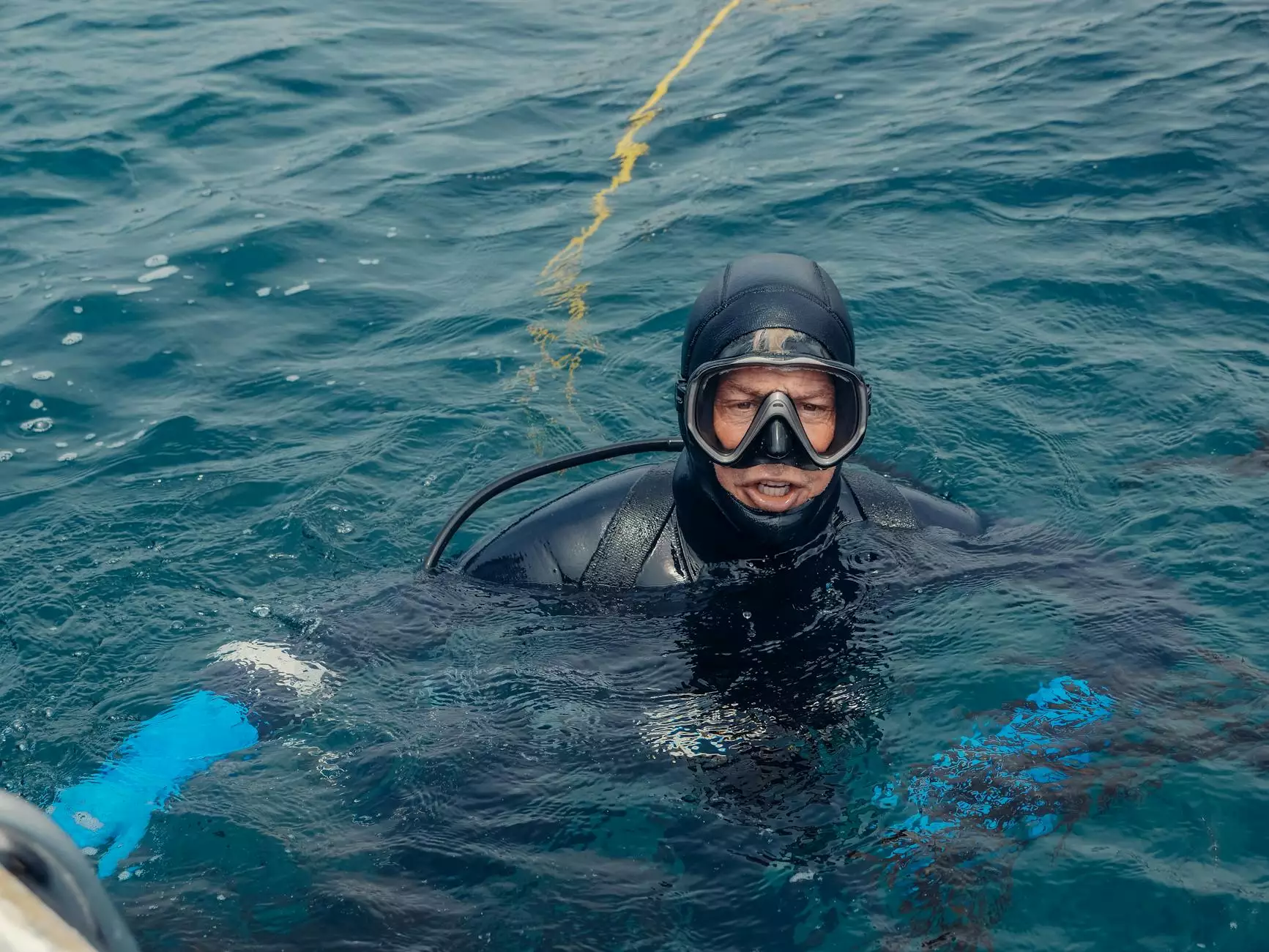The Ultimate Guide to Business Success in the Dive Equipment Industry

In the thriving world of underwater exploration, the dive equipment industry has established itself as a pivotal sector, offering unparalleled opportunities for entrepreneurs and established businesses alike. From innovative gear manufacturing to immersive tour experiences, the underwater adventure economy continues to expand rapidly. If you're looking to carve out a dominant position in this niche, understanding the key components of successful business strategies, superior dive equipment, and complementary services like tours, dive bars, and boat tours is essential.
Understanding the Dive Equipment Industry: A Foundation for Success
The core of any underwater business revolves around dive equipment. This encompasses a broad spectrum of products—from basic scuba gear to high-end technical equipment—serving both recreational and professional divers. The industry is characterized by rapid technological innovation, strict safety standards, and a passionate community committed to underwater exploration.
The Importance of High-Quality Dive Equipment for Business Growth
Trustworthiness and durability are the cornerstones of excellent dive equipment. When your customers invest in gear, they expect it to perform flawlessly under the most demanding conditions. Business owners who prioritize providing top-tier products gain a reputation for safety and reliability, which in turn fosters customer loyalty and positive word-of-mouth marketing.
Key Categories of Dive Equipment
- Scuba Regulators: The heart of breathing apparatus, ensuring safe airflow during dives.
- BCD (Buoyancy Control Devices): Allow divers to control their buoyancy effortlessly.
- Dive Masks and Snorkels: Essential for clear vision and comfortable breathing at the water surface.
- Wetsuits and Drysuits: Protect divers from cold water and provide insulation.
- Fins and Dive Shoes: Enhance propulsion and safety.
- Dive Computers and Gauges: Monitor depth, time, and decompression status.
- Underwater Lighting and Cameras: Facilitate exploration and documentation.
Innovating and Sourcing the Best Dive Equipment
In a competitive industry, innovation is paramount. Leading manufacturers continuously improve their dive equipment through advanced materials, ergonomic designs, and integrated technology. Source your products from reputable suppliers that adhere to international safety standards like CE, ISO, and CE. Establishing strong relationships with trusted brands can help your business maintain a stock of high-performance gear, attract discerning customers, and command premium pricing.
Building a Business Around Dive Equipment: Strategies for Market Domination
To outperform competitors and ensure growth, combining excellent dive equipment offerings with engaging services and marketing strategies is essential. Here are several proven approaches:
1. Providing Comprehensive Dive Packages
Bundle your top-quality dive equipment with personalized dive tours, equipment rentals, and training courses. Customers prefer seamless experiences where all their underwater needs are met professionally and conveniently.
2. Embracing E-commerce and Online Engagement
Develop a robust online store showcasing your dive equipment catalog. Use high-quality images, detailed descriptions, and customer reviews to build trust. Engage audiences through social media, diving blogs, and video tutorials that highlight your expertise and product range.
3. Offering Exceptional Customer Service and Technical Support
Ensure clients receive expert advice tailored to their diving needs. Offer post-sale support, maintenance services, and equipment upgrade options to foster loyalty and repeat business.
4. Diversifying with Tours, Dive Bars, and Boat Tours
Complement your product offerings with engaging services like:
- Scenic Dive Tours: Guided excursions that showcase the most beautiful underwater sites.
- Dive Bars: Social hubs that celebrate dive culture, offering local brews, events, and networking opportunities for divers.
- Boat Tours: Comfortable, well-equipped boats that give access to exclusive dive spots and enhance customers' adventure experiences.
The Role of Business Locations and Branding in the Dive Equipment Sector
Establishing a strategic physical presence can significantly affect your brand recognition. Prime locations near popular diving destinations, resorts, or coastal cities attract both tourists and locals. Similarly, a distinct brand identity emphasizing safety, adventure, and quality ensures you stand out from competitors.
Leveraging Technology and Digital Marketing
Invest in the latest digital tools to maximize reach:
- Optimized website with secure e-commerce capabilities for selling dive equipment.
- Search engine optimization (SEO) techniques focusing on keywords like dive equipment, scuba gear, and diving tours.
- Content marketing through blog posts, diving tutorials, and customer experience stories.
- Targeted social media campaigns on platforms like Instagram, Facebook, and YouTube showcasing your gear and services.
Prioritizing Safety and Environmental Sustainability
Modern consumers value eco-friendly and safety-conscious business practices. Invest in sustainable dive equipment, such as biodegradable wetsuits and eco-conscious packaging, to appeal to environmentally aware clients. Ensure all products meet rigorous safety standards to build trust and reduce liability risks.
Training and Certification Programs: An Adjunct to Your Business Model
Offering scuba diving courses and certifications not only attracts more clients but also positions your brand as an industry authority. Well-trained divers are more likely to invest in quality dive equipment and return for advanced experiences like technical dives or specialty courses.
The Future of the Dive Equipment Business: Trends to Watch
The industry is evolving with advancements like:
- Smart Dive Gear: Integration of AI and IoT for enhanced safety and monitoring.
- Customization: Personalized gear adapting to individual dive profiles and preferences.
- Sustainable Materials: Use of recycled plastics, non-toxic coatings, and eco-friendly manufacturing processes.
- Virtual and Augmented Reality: Pre-dive virtual experiences that boost customer confidence and training efficiency.
Conclusion: Building a Resilient and Profitable Dive Equipment Business
Success in the dive equipment industry hinges on offering superior products, exceptional customer experiences, and engaging supplementary services like tours, dive bars, and boat tours. By continuously innovating, prioritizing safety and sustainability, and leveraging powerful digital marketing, your business can achieve lasting prominence in this vibrant sector. The underwater world is full of opportunities—capitalize on them with confidence, expertise, and a commitment to excellence.
dive equipment








